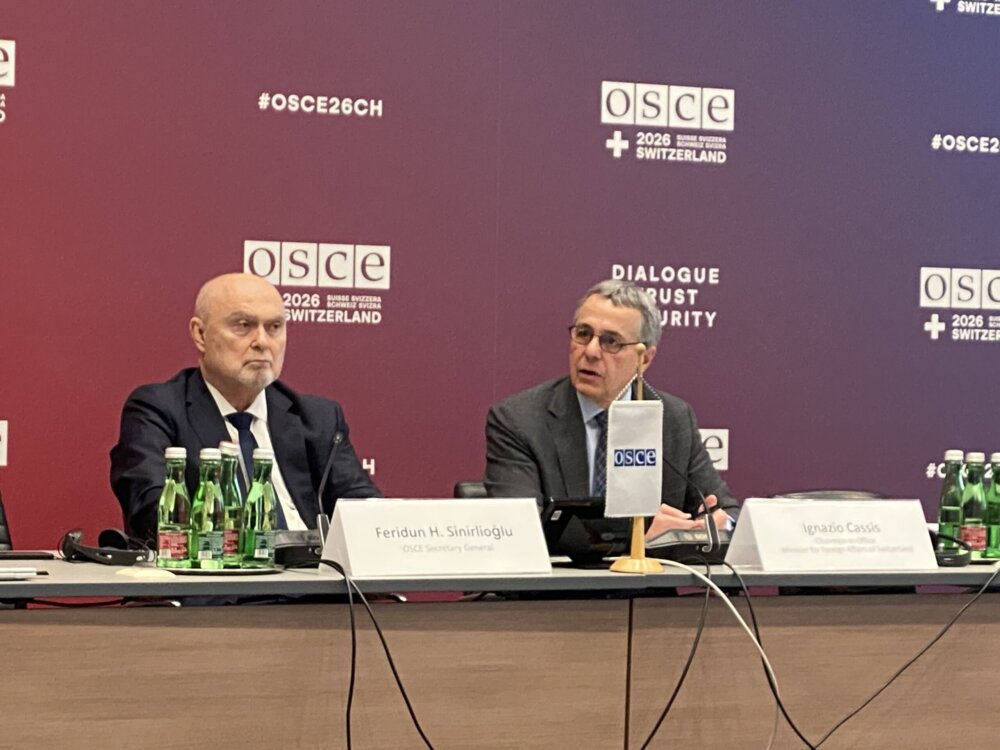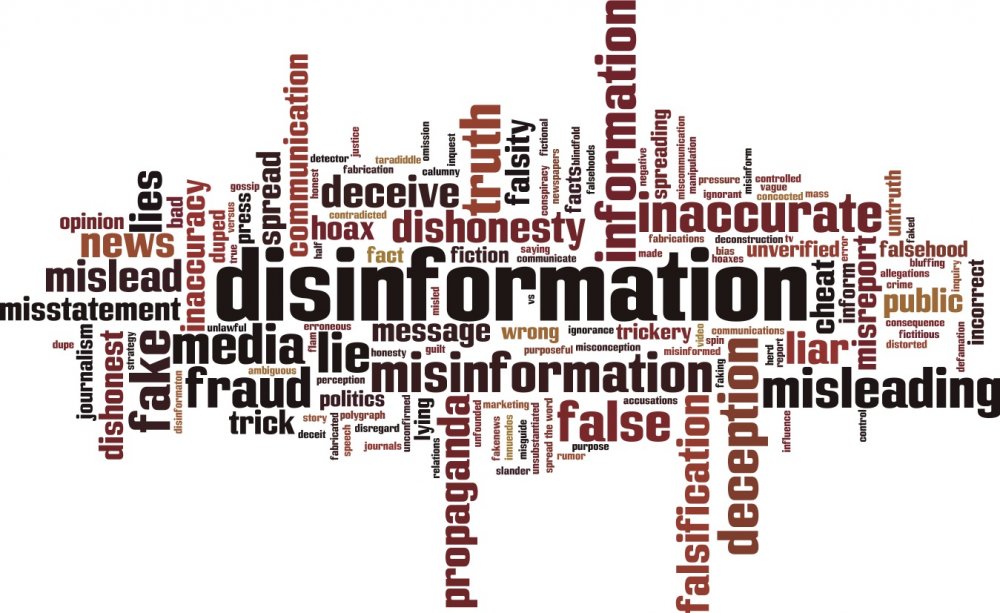Golden Jubilee of Helsinki Final Act Commemorated Amid War in Ukraine
More than one thousand participants gathered in Helsinki on July 31 to commemorate the 50th anniversary of the Helsinki Final Act, the OSCE’s founding document, as Russia’s ongoing war in Ukraine cast a shadow over the principles established in 1975.
The Final Act was signed in Helsinki on August 1, 1975, after several years of negotiations. It marked an important moment during the Cold War as it helped to improve relations between the Communist bloc and the West.
The Conference on Security and Cooperation in Europe (CSCE) was the only platform for dialogue between East and West at the time. The politically-binding agreement included commitments to respect human rights, promote economic cooperation, and enhance security in Europe.
Speakers inside Helsinki’s iconic Finlandia Hall, the location where the original Helsinki Final Act was signed in 1975, faced the challenge of honoring the Helsinki legacy while confronting unprecedented violations of its founding principles.
The meeting in Helsinki was not an official OSCE event; therefore, no formal decisions were taken. However, an initiative to establish a Helsinki+50 fund was agreed upon to improve the coordination of extra-budgetary funding, thus addressing the budgetary deadlock since 2021.
Plans for a Major Summit Canceled
Former Finnish President Sauli Niinistö had previously proposed a major OSCE summit in Helsinki to commemorate the 50th anniversary in 2025, but plans were scrapped following Russia’s full-scale invasion of Ukraine and Finland’s subsequent NATO membership. Instead, Finland decided to host a smaller commemorative event on July 31.
In a rare diplomatic move, Finland also opted against hosting the annual OSCE Ministerial Council that usually takes place each December in the country holding the OSCE Chair. Instead, Finland asked Austria to hold the ministerial gathering in Vienna in December under Finland’s 2025 OSCE Chair.
While both Finland and Austria cited budgetary and organizational reasons for the decision, OSCE diplomats said the move also enabled Finland to avoid controversies around potentially having to invite the Russian Foreign Minister.
Finnish Foreign Minister: Civil Society’s Power to ‘Shake Even the Mightiest Empires’
Finnish Foreign Minister Elina Valtonen, who also holds the position of OSCE Chair-in-Office, opened the conference and highlighted the exceptional nature of the original Helsinki gathering. “50 years ago something exceptional happened in Helsinki. In a Europe divided by ideological confrontation, the leaders of 35 countries from East and West gathered in this room to sign the Helsinki Final Act,” she said.
Valtonen noted how initially skeptical officials later recognized the Final Act’s transformative power, citing then U.S. Secretary of State Henry Kissinger who “in the 1970s deemed the human rights basket of the Helsinki Final Act meaningless, famously stating, ‘they can write it in Swahili for all I care.’” Kissinger later acknowledged that it had in fact “represented a turning point and started the eventual erosion of Soviet rule,” she said.
The Foreign Minister praised the role of grassroots movements: “At the heart of this transformation was civil society. Movements like Solidarity in Poland, Charter 77 in Czechoslovakia, Initiative for Peace and Human Rights in East Germany, and the Baltic Way showed us that the courage of ordinary citizens can shake even the mightiest empires,” she said.
She outlined three immediate priorities: supporting Ukraine and holding Russia accountable; reforming the OSCE, especially achieving agreement on the budget which hasn’t been approved since 2021; and upholding “shared commitments, open dialogue and the voice of civil society.”
Finnish President: ‘We Are Living the 1918, 1945 and 1989 Moment of Our Generation’
Finnish President Alexander Stubb reflected on Finland’s original plan to hold a summit in 2025 to commemorate the 50th anniversary of the Helsinki Final Act: “In 2021, my predecessor President Sauli Niinistö proposed the idea of organizing a conference to commemorate the 50th anniversary of the Helsinki Final Act and the Conference on Security and Co-operation in Europe,” Stubb explained. “The objective was to honor the spirit of Helsinki and to see how current and future security discussions could benefit from its legacy.”
Stubb acknowledged the dramatic shift in global circumstances since this proposal: “Four years ago, our understanding of the world was quite different from what it is today. Tension was already building. A growing number of world leaders seemed to be relying increasingly on power and coercion to achieve their aims, showing less and less respect for common rules and dialogue,” he said.
The Finnish president characterized Russia’s invasion of Ukraine as unprecedented, stating: “Still, no one could have imagined that a European country would attack its neighbor, without any provocation, and start a full-scale war in the very heart of Europe. But then again, let’s be honest with ourselves: Russia began this pattern already in August 2008 when it attacked Georgia,” he noted, also recalling that he was OSCE Chair-in-Office at the time.
Stubb framed the current moment as historically significant: “The 24th of February 2022 marks a turning point in world history. We are living the 1918, 1945 and 1989 moment of our generation. We do not know where exactly the world is going, but we know that it is changing. There is no going back,” he told the gathering.
The president said he believed that Europe has been permanently altered by Russia’s invasion of Ukraine.
Stubb drew contrasts between the 1945 Yalta conference and the 1975 Helsinki Final Act. He said that Yalta “was based on the idea of winners and losers, and spheres of interest of major powers. The Helsinki Final Act, on the other hand, was not about winners, losers or the use of force. Instead, cooperation was to be built upon common principles, dialogue and mutual respect. This is the essence of the spirit of Helsinki,” he stressed.
Stubb concluded by presenting Europe with a fundamental choice: “The choice is between Yalta and Helsinki: between the spheres of interest and the use of force – or – the sovereignty of states and common rules and principles,” he said.
OSCE Secretary General: ‘Our Collective Security Architecture Is in Shambles’
OSCE Secretary General Feridun H. Sinirlioğlu focused on the future rather than the past. “Today, rather than to talk about the Helsinki Final Act with my eyes on the past, I want to look to the future and talk about the next 50 years. The future security architecture that will ensure a better and safer order for our children and grandchildren,” the Secretary General said.
Assessing the current state of international security, the Secretary General was blunt: “Together we are navigating through an increasingly difficult and uncertain period. Our collective security architecture, which our founding fathers and mothers built over decades of hard work, with sometimes a high cost, is in shambles before us,” he said.
Feridun H. Sinirlioğlu emphasized the need for consistent application of principles: “Therefore, when it comes to principles, they should be applied to everyone, inside and outside of the OSCE regime. Selectively applying rules and exceptions erodes international law. We must stand against aggression everywhere it is perpetrated, by whomever it is perpetrated,” he told conference participants.
On the importance of dialogue, the Secretary General stated: “Dialogue is always possible. The only prerequisite to dialogue is a space to exercise that. You, the participating states, have created that. It was designed here in Helsinki in 1975. It was built on in the following decades. You have created by consensus the OSCE to hold that space. Now is the time to use it,” he said.
Making a personal appeal, the Secretary General called for the release of all those in captivity, including three OSCE officials: “I want to stress once again publicly my call that these initiatives should include our three OSCE officials Vadym Golda, Maksym Petrov and Dmytro Shabanov. After three years their families continue to endure unspeakable anguish and pain and deserve to hold their loved ones again as do far too many families of prisoners,” he stressed.
Ukrainian President: ‘Russia Keeps Launching Attacks Even When the Whole World Is Calling on It to Stop’
Ukrainian President Volodymyr Zelenskyy addressed the gathering via video link as his country faced fresh Russian attacks. “Last night, Russia launched another massive attack on Ukraine, this time on Kyiv.”
He described the devastating impact: “Once again, a Russian missile hit a residential building. A whole section of the building was turned into rubble and dust – just like the lives of the people who lived there. Across Kyiv, dozens of people were injured in today’s attack. There are fatalities, and sadly, the number of dead is still rising,” he said.
Zelenskyy characterized Russian leadership as “mentally stuck in another century – a time of brutal violence, deportations, and total disregard for human rights and equality.” He said that “Russia can be pushed to stop this war. It started it – and it can be made to end it.”
However, he warned: “But if the world doesn’t aim to change the regime in Russia, that means even after the war ends, Moscow will still try to destabilize neighboring countries. It will keep spending huge amounts of money, resources, and maybe even lives to do so.”
Zelenskyy outlined a strategy: “Our main task is to stop Russia now, and to do everything we can to grow our shared strength – in security, in economy, in technology, in social development. I’m grateful to everyone applying sanctions against Russia – and preparing new ones. And we need to fully block Russia’s war machine.”
President Zelenskyy ended his speech with a plea: “If we look back at the choice made in Helsinki 50 years ago – it was also a choice for life, not war. Please, keep putting pressure on Russia – for the sake of peace. And invest in your own security.”



Comments
* Your email address will not be published